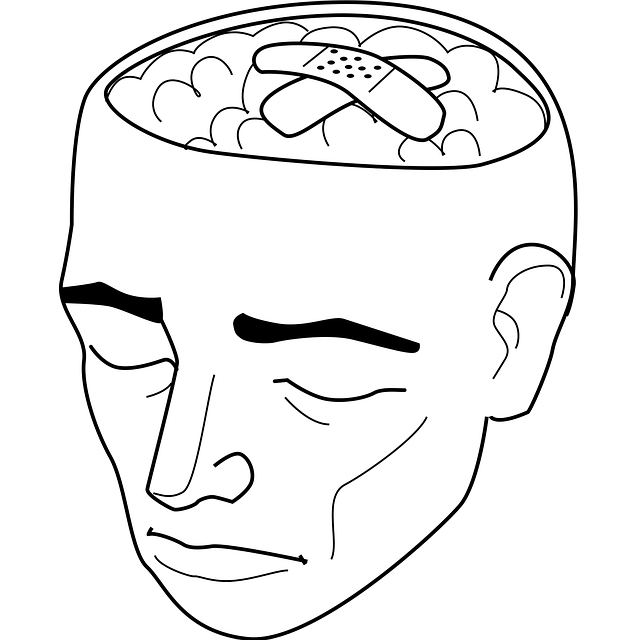Self-care is a powerful tool for enhancing mental health through activities like exercise, mindfulness, hobbies, and setting boundaries. Research, including Westminster Dialectical Behavioral Therapy (DBT), highlights its benefits in reducing stress, anxiety, and depression. DBT, an evidence-based approach, combines cognitive-behavioral techniques with mindfulness to teach skills in distress tolerance, emotion regulation, interpersonal effectiveness, and mindfulness. By integrating these principles into daily life through structured workshops and group therapy, individuals can build resilience, improve communication, boost self-esteem, and achieve long-lasting positive mental health outcomes. Community resources and programs support this journey by providing accessible insights and practical tips for stress management and sustainable self-care practices.
“Enhance your mental well-being with self-care practices tailored for modern living. This comprehensive guide explores the profound impact of self-care on mental health, highlighting the benefits of Westminster Dialectical Behavioral Therapy (DBT) in cultivating a healthy mindset. Discover evidence-based strategies to incorporate mindfulness, emotion regulation, and distress tolerance into your daily routine. Learn how to overcome challenges and maintain a sustainable self-care journey for a more balanced and fulfilling life.”
- Understanding Self-Care and Its Impact on Mental Well-being
- The Role of Dialectical Behavioral Therapy (DBT) in Self-Care Practices
- Strategies for Incorporating Effective Self-Care Routines
- Overcoming Challenges and Sustaining a Healthy Self-Care Journey
Understanding Self-Care and Its Impact on Mental Well-being

Self-care is an essential aspect of maintaining good mental health and overall well-being. It involves a range of activities and practices that individuals engage in to nurture their minds, bodies, and spirits. At its core, self-care is about recognizing one’s needs and taking proactive steps to meet them, ensuring a sense of balance and harmony in life. This can include various activities such as regular exercise, mindfulness practices like meditation or deep breathing, engaging in hobbies that bring joy, and setting healthy boundaries to protect personal time and energy.
In the context of mental well-being, self-care plays a pivotal role. Studies have shown that incorporating self-care routines into daily life can significantly reduce stress, anxiety, and depression. For instance, Westminster Dialectical Behavioral Therapy (DBT) emphasizes the importance of mindfulness and emotional regulation as key components of self-care. By learning effective communication strategies to express needs and setting healthy boundaries, individuals can improve their self-esteem and foster positive relationships. These practices enable people to navigate life’s challenges with greater resilience, ultimately enhancing their overall mental health and quality of life.
The Role of Dialectical Behavioral Therapy (DBT) in Self-Care Practices

Dialectical Behavioral Therapy (DBT) has emerged as a powerful tool in the realm of self-care practices and mental health management. This therapeutic approach, pioneered at the Harvard Medical School, offers individuals effective strategies to navigate emotional turmoil and enhance overall well-being. By combining cognitive-behavioral techniques with mindfulness practices, DBT enables folks to develop a healthier relationship with themselves and their emotions.
In the context of self-care routine development for better mental health, Westminster Dialectical Behavioral Therapy therapy provides skills training in distress tolerance, emotion regulation, interpersonal effectiveness, and mindfulness—all essential components for managing stress and cultivating confidence. Stress management workshops organized under this framework empower individuals to confront challenges head-on, fostering resilience and a sense of control over their lives. These workshops not only help in improving self-care practices but also offer long-lasting coping mechanisms that can be incorporated into daily life, revolutionizing one’s approach to emotional well-being.
Strategies for Incorporating Effective Self-Care Routines

Incorporating effective self-care routines into your daily life is a crucial aspect of holistic well-being, and Westminster Dialectical Behavioral Therapy (DBT) offers valuable strategies to achieve this balance. DBT emphasizes the importance of mindfulness, emotional regulation, and healthy coping mechanisms, all of which contribute to building resilience. By integrating these principles into your self-care practices, you can enhance your mental wellness and overall quality of life. Start by setting aside dedicated time for activities that nourish your mind, body, and soul—whether it’s practicing meditation or engaging in physical exercise. Consistency is key; consider creating a personalized routine that aligns with your lifestyle and preferences.
Community outreach program implementation and participation in mental wellness podcast series production can also be powerful tools for self-improvement. These platforms provide access to diverse perspectives and expert insights, offering guidance on various aspects of mental health and self-care. Through these resources, you can gain practical tips on stress management, emotional support strategies, and sustainable lifestyle changes. Embracing these initiatives not only benefits your personal journey but also contributes to a supportive community focused on resilience building and overall mental wellness promotion.
Overcoming Challenges and Sustaining a Healthy Self-Care Journey

Overcoming challenges is a significant aspect of sustaining a healthy self-care journey. Many individuals struggle to maintain consistent self-care practices due to demanding schedules, mental health barriers, or societal pressures. However, with the right support and tools, these obstacles can be overcome. Westminster Dialectical Behavioral Therapy (DBT) offers evidence-based strategies for managing stress, regulating emotions, and cultivating mindfulness—essential components of a robust self-care routine.
The Stress Management Workshops Organization and Emotional Well-being Promotion Techniques within DBT play a crucial role in mental illness stigma reduction efforts. By providing accessible resources and creating safe spaces for learning and growth, these initiatives empower individuals to prioritize their emotional well-being. Through group therapy sessions, participants learn effective coping mechanisms that can be integrated into daily life, fostering resilience and sustaining long-term self-care habits.
Self-care is not a luxury but a necessity for maintaining mental well-being. As discussed in this article, understanding the importance of self-care and incorporating effective practices like those suggested by Dialectical Behavioral Therapy (DBT) can significantly enhance our quality of life. By adopting strategies tailored to individual needs and overcoming challenges with resilience, we can sustain a healthy self-care journey. Westminster Dialectical Behavioral Therapy offers valuable tools for navigating this path, fostering personal growth, and achieving a balanced and fulfilling life.












